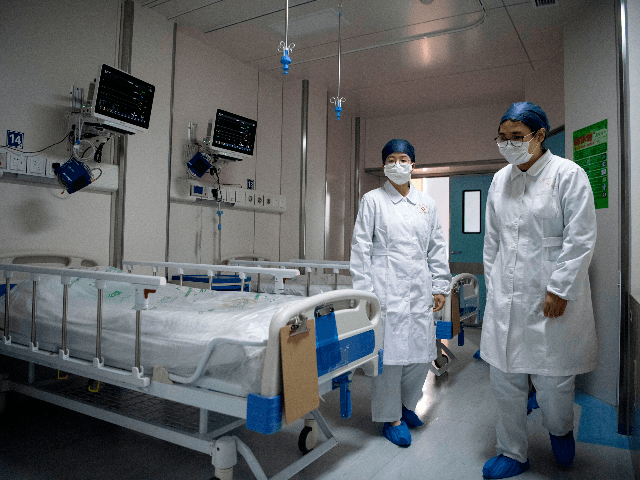Authorities in the Chinese city of Wuhan introduced a 14-day mandatory quarantine this weekend for patients who had supposedly recovered from the coronavirus after some discharged patients again tested positive for the disease.
Saturday afternoon, all patients who had recovered and been discharged were forced to return to quarantine, the city’s coronavirus treatment and control command center announced on the Chinese social media site Weibo.
The new arrangements were announced after disease control experts warned that those who had supposedly made a recovery from the virus may have not done so after all and may still carry the virus and present a consequent contagion risk.
Wuhan and the wider Hubei province continue to account for the vast majority of coronavirus cases across China where around 78,000 people have been infected and nearly 2,500 have died. Many have questioned these official figures from the Communist Party.
Some experts warned that the current way by which Chinese doctors define when a patient is “cured” may be insufficient. Zhao Jianping, a doctor in Hubei, explained to Southern People Weekly last week that the issue was causing major difficulties as resources are already stretched.
“This is dangerous,” he said. “Where do you put those patients? You cannot send them home, because they might infect others, but you cannot put them in the hospital because resources are stretched.”
One patient in the southwestern city of Chengdu recently tested positive nine days after his discharge on February 10. A woman from Hunan province also tested positive five days after release from a quarantine center on February 9.
The South Metropolitan Daily also reported on Saturday that the coronavirus was detected in stool samples from a small number of discharged patients in Guangzhou.
“It may be that there are still viruses or viral gene fragments in the discharged patients,” Cai Weiping, head of the infectious diseases department at Guangzhou No 8 Hospital, told the outlet. “It is not yet certain whether they are infectious. This is a new pathogen, and we don’t yet have a perfect process to understand it.”
The relapses raise questions over the current requirements for patients to be discharged. Patients can currently be discharged if they meet the following criteria: a three-day decline in body temperature, CAT scans showing a significant improvement in respiratory symptoms and the lungs, and negative results in two nucleic acid tests at least one day apart.
Follow Ben Kew on Facebook, Twitter at @ben_kew, or email him at bkew@breitbart.com.

COMMENTS
Please let us know if you're having issues with commenting.